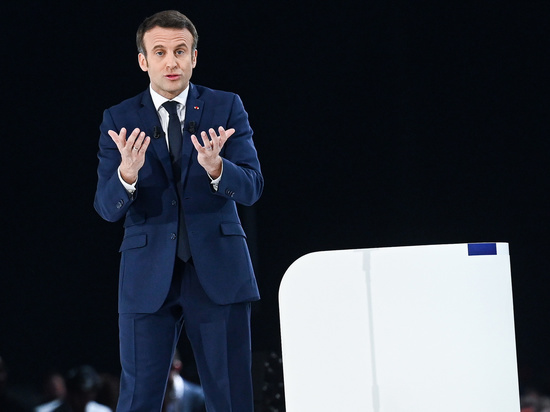Lack of voter turnout threatens unpredictable results
There is very little time left before the first round of the presidential elections in France. According to polls, the current head of state Emmanuel Macron is leading among the candidates, but voter turnout remains under great doubt – and this factor introduces an element of unpredictability.
Emmanuel Macron is the clear favorite in the French presidential race, the Associated Press reported, but a big unknown factor could prove decisive: An unprecedented percentage of voters say they are not sure who to vote for or are not going to vote at all, which introduces a large element of uncertainty into the current election.
Although Macron still has a strong lead in the polls, his main rival, the leader of the far-right Rassemblement National, Marine Le Pen, has been gaining ground in recent days. Both politicians can count on a runoff in the April 24 presidential election, which would force them to replicate the scenario of the 2017 election, which Macron won.
“There is no certainty,” Macron warned supporters during his first big campaign rally late last week near Paris. – Don’t believe polls or commentators who will sound categorical and tell you that … the election has already taken place, that everything will be fine.”
The scenarios for this year’s runoff vote show that Le Pen has significantly narrowed the gap with Macron compared to 2017, when she lost with 34% of the vote to support his 66% of the vote.
Polls still put her behind Macron, but the gap between them is much narrower, obviously demonstrating the effectiveness of Le Pen’s longstanding strategy of softening her rhetoric and image.
In recent days, Macron’s campaign has also faced an obstacle, dubbed the “McKinsey Affair” after the American consulting firm hired to advise the French government on its COVID-19 vaccination campaign and other issues. According to last French Senate report the government’s use of private advisors is doubtful and McKinsey is accused of tax evasion.
Many in Macron’s camp fear that his supporters may not go to the polls because they already think the current head of state will win and those who resent his policies will surely vote, the Associated Press says.
“Of course I have concerns,” says Julien Decamp, a 28-year-old member of Macron’s party, stressing that some people in his entourage “don’t know what to do.” “They are not completely convinced by Macron, but if they reject extremes, they should vote for him,” he said.
Macron urged voters to mobilize against both the far right and the extreme left in France. “Don’t boo them, fight their ideas,” he said.
In third place among the candidates, according to polls, is far-left politician Jean-Luc Melanchon, who has increased his support but is still far behind Marine Le Pen. Another far-right candidate, Eric Zemmour, and conservative candidate Valérie Pecress are among the other key contenders. The first round on Sunday will define two main candidates for the second round.
The presidential election is most appealing to French voters. Nevertheless, turnout has fallen from 84 percent in 2007 to about 78 percent in 2017, and studies show that the level of people choosing to abstain from voting may be higher than five years ago. In particular, young and working-class people are less confident about going to the polls than retirees and upper-class voters.
According to sociologists, the low turnout could have a major impact on the vote. They note that most people don’t yet know who they will vote for – or if they will vote at all.
The falling purchasing power of French families is a major concern for voters amid rising food and energy prices, as well as social benefits, security, immigration and the environment. But many believe these issues were not adequately addressed in this year’s campaign, in part because the conflict in Ukraine overshadows all other issues, the Associated Press notes.
Kevin, a 26-year-old history and geography teacher at a public high school working in a poor suburb north of Paris, lamented the lack of political debate in the campaign. Calling himself a “leftist,” he said he felt “very disappointed” by the current French political scene. Kevin said he is still hesitant. But either way, he won’t vote for either Macron or Le Pen.
Macron, who has recently devoted much of his time to diplomatic negotiations trying to end the conflict in Ukraine, is seeking to intensify his short campaign ahead of Sunday’s vote, giving several interviews to the French media and including campaign events in his agenda almost every day. “Friends, you get it: it’s time to mobilize. It’s time to fight,” he told supporters.
1,032 total views, 2 views today



